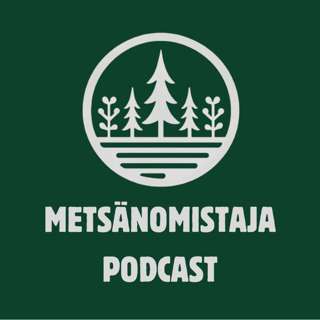
69 - Frank Jackson: Conceptual Analysis, Physicalism, and Mary’s Room
Frank Jackson is Emeritus Professor at the Australian National University. He is best known for the knowledge argument and Mary’s Room—its accompanying thought experiment—but has published widely in the philosophy of mind, epistemology, metaphysics, and the philosophy of language. Frank and Robinson discuss conceptual analysis—or the philosophical technique of examining the meaning, content, or definition of a concept to resolve questions about it—as well as physicalism, reference in the philosophy of language, the knowledge argument, and more. Much of the material discussed in this episode can be found in greater depth in Frank’s 1998 book, From Metaphysics to Ethics: A Defence of Conceptual Analysis. OUTLINE: 00:00 Introduction 5:42 Growing Up in a Household of Philosophers 11:06 What Is Conceptual Analysis? 16:01 Physicalism, the Location Problem, and Conceptual Analysis 21:00 Conceptual Analysis and the Sorites Paradox 25:48 A Priori Physicalism 38:13 Physicalism in Math and Elsewhere 43:31 Color and the Location Problem 54:10 Ethics and the Location Problem 1:06:49 Metaphilosophy 1:13:13 Naming, Language, and Mind 1:30:05 One-Spaceism and Two-Spaceism 1:39:12 Mary’s Room and the Knowledge Argument Robinson’s Website: http://robinsonerhardt.com Robinson Erhardt researches symbolic logic and the foundations of mathematics at Stanford University. Join him in conversations with philosophers, scientists, weightlifters, artists, and everyone in-between.
30 Maalis 20232h 3min

68 - Simon Blackburn: Moral Realism, Antirealism, and Quasirealism
Simon Blackburn was Professor of Philosophy at the University of Cambridge and Edna J. Koury Distinguished Professor of Philosophy at the University of North Carolina, Chapel Hill. Though he has worked in many areas of philosophy, he is best known for his contributions to metaethics and the philosophy of language. Simon and Robinson discuss the distinction between ethics and metaethics before primarily focusing on the latter, where they explore the concept of realism. Simon’s latest books are Lust and Mirror, Mirror. OUTLINE: 4:31 Simon’s History with Metaethics 8:20 Distinguishing Ethics and Metaethics 12:57 On Moral Realism 39:42 Frege and the True 43:57 Moral Quasi-realism 54:52 Moral Quasi-realism and Living a Good Life Robinson’s Website: http://robinsonerhardt.com Robinson Erhardt researches symbolic logic and the foundations of mathematics at Stanford University. Join him in conversations with philosophers, scientists, weightlifters, artists, and everyone in-between.
27 Maalis 20231h 8min

67 - David Albert & Tim Maudlin: The Philosophical Foundations of Quantum Theory
David Albert is the Frederick E. Woodbridge Professor of Philosophy at Columbia University, where he directs the Philosophical Foundations of Physics program. Tim Maudlin is Professor of Philosophy at NYU. Both David and Tim are renowned as leading philosophers of physics, though their work extends beyond that to the philosophy of science and metaphysics. David is a prior guest (episodes 23 and 30) of Robinson’s Podcast, as is Tim (episode 46). David, Tim, and Robinson discuss the foundations of quantum theory, beginning with its historical motivation, tracking through some important concepts—superposition and the measurement problem—and then exploring some of its philosophical aspects (such as determinism, realism, the potential for backward causation, and more). Robinson’s Website: http://robinsonerhardt.com OUTLINE: 00:00 In This Episode… 00:17 Introduction 2:51 What Motivated the Development of Quantum Theory? 7:05 Superposition and the Measurement Problem 31:42 John Bell’s Theory of Local Beables 44:30 Formalism and Interpretation in Quantum Theory 51:52 The Einstein-Podoksky-Rosen Argument 58:26 On “Interpretations” of Quantum Theory 1:11:17 The Ghirardi-Rimini-Weber Theory of Spontaneous Collapse 1:16:19 The Many Worlds Theory 1:30:46 Determinism 1:46:29 Quantum Mechanics and Quantum Field Theory 1:48:28 Realism 1:52:15 Monism and Entanglement 1:58:19 Backward Causation 2:04:32 An Experiment to Further Foundations Robinson Erhardt researches symbolic logic and the foundations of mathematics at Stanford University. Join him in conversations with philosophers, scientists, weightlifters, artists, and everyone in-between.
25 Maalis 20232h 9min

66 - Noam Chomsky: History and Philosophy of Linguistics
Noam Chomsky is Professor of Linguistics Emeritus at MIT and Laureate Professor of Linguistics at the University of Arizona. He not only counts as among the most influential linguists of all time, but he has played a major role in the development of twentieth and twenty-first century philosophy, cognitive science, and political theory. Noam and Robinson talk about some of the major topics in modern linguistics, ranging from generative and universal grammar to innateness hypotheses and the current limitations of large language models for studying human linguistic faculties. There are also philosophical dimensions to the conversation, as Noam touches on his time with Nelson Goodman, Hilary Putnam, and W. V. O. Quine, while other concerns—such as the indeterminacy of reference and the relationship between thought and language—recur throughout the discussion. OUTLINE: 00:00 In This Episode… 00:27 Introduction 8:32 Noam’s Entry into Linguistics 11:03 Ferdinand de Saussure and Twentieth Century Linguistics 23:04 The Sapir-Whorf Hypothesis 26:00 Thoughts on Language and Behaviorism 35:24 Innateness Hypotheses in Linguistics 42:00 Innateness and Universal Grammar 46:02 Limitations of Large Language Models 48:42 Impossible Languages and What Linguists Study 1:00:10 Historical Shifts in Linguistics Robinson’s Website: http://robinsonerhardt.com Robinson Erhardt researches symbolic logic and the foundations of mathematics at Stanford University. Join him in conversations with philosophers, scientists, weightlifters, artists, and everyone in-between.
23 Maalis 20231h 4min

65 - Tania Lombrozo: Explanation and Human Psychology
Tania Lombrozo is Arthur W. Marks ’19 Professor of Psychology at Princeton University, where she directs the Concepts & Cognition Lab. Before that, she did her undergraduate work at Stanford University (!), her graduate work at Harvard University, and then taught at the University of California, Berkeley. Robinson and Tania discuss her work on explanation. Among other things, they touch on our intuitions about what makes explanations good, what makes certain observations seem to demand explanation, some of the differences between religious and scientific explanations, and how we reason about morally charged situations. Keep up with Tania’s work through: Twitter: https://twitter.com/TaniaLombrozo Tania’s Website: https://psych.princeton.edu/people/tania-lombrozo The Concepts & Cognition Lab: https://cognition.princeton.edu OUTLINE: 00:00 Introduction 2:23 From Philosophy to Psychology 8:03:39 Tania’s Interest in Learning and Explanation 11:28 Experiments to Test Our Intuitions About Explanation 16:16 Our Intuitions About What Makes a Good Explanation 27:06 Explanation-Based Processes 29:30 What Demands Explanation? 38:33 Religious and Scientific Explanation? 40:51 What Makes a Good Answer? 43:59 Marr’s Levels of Explanation 48:36 Tania’s Work with Neuroscientists 54:05 More on Explanations in Science and Religion 1:00:58 Moral Reasoning and Explanation 1:07:28 Can Science Explain the Human Mind? 1:12:57 Philosophy and Psychology 1:16:39 Psychology in Tania’s Life Robinson’s Website: http://robinsonerhardt.com Robinson Erhardt researches symbolic logic and the foundations of mathematics at Stanford University. Join him in conversations with philosophers, scientists, weightlifters, artists, and everyone in-between.
20 Maalis 20231h 25min

64 - Sarah Moss: Probabilistic Knowledge
Sarah Moss is the William Wilhartz Professor of Philosophy and Professor of Law by courtesy at the University of Michigan. She works primarily in epistemology and the philosophy of language, though in the case of this conversation her work has an important bearing on legal philosophy. Robinson and Sarah talk about her book Probabilistic Knowledge, which argues that you can know something that you believe even if you do not believe it fully, and as she quite aptly points out, “The central theses of the book have significant consequences for social and political questions concerning racial profiling, statistical evidence, and legal standards of proof,” all of which are discussed in this episode. Robinson and Sarah begin by introducing the concept of probabilistic belief before turning to Sarah’s argument in favor of probabilistic knowledge. They then turn to some applications of her work to outstanding puzzles in philosophy and law. Keep up with Sarah on her website, http://www-personal.umich.edu/~ssmoss/, and check out Probabilistic Knowledge on Amazon, https://a.co/d/iobL8iZ. Robinson’s Website: http://robinsonerhardt.com OUTLINE: 00:00 Introduction 3:58 Math and Epistemology 7:35 What is Probabilistic Belief? 11:22 Sarah, David Lewis, and Robert Stalnaker 28:26 Credence and Probabilistic Belief 33:40 Are All Beliefs Probabilistic? 56:57 Probabilistic Knowledge and Racial Profiling 1:20:25 Probabilistic Knowledge and Transformative Experience 1:29:30 Statistical Evidence and Legal Proof 1:48:39 Pragmatic Encroachment on Legal Proceedings 2:04:07 Is Belief a Strong or a Weak Attitude? 2:12:39 The Preface Paradox 2:21:06 Probabilistic Knowledge and the Newcomb Problem 2:27:18 Probabilistic Knowledge and the Philosophy of Action Robinson Erhardt researches symbolic logic and the foundations of mathematics at Stanford University. Join him in conversations with philosophers, scientists, weightlifters, artists, and everyone in-between.
18 Maalis 20232h 31min

63 - Thomas Ryckman & Mark Wilson: The State of Analytic Philosophy
Thomas Ryckman is Professor of Philosophy at Stanford University, where he works on the philosophy of physics. Mark Wilson is Distinguished Professor of Philosophy at the University of Pittsburgh, where he works at the intersection of the philosophy of math and physics on the one side and metaphysics and the philosophy of language on the other. Tom, Mark, and Robinson discuss the present state of analytic philosophy, the dominant tradition in the United States, including some potential obstacles and important ideas of the twentieth century that have been forgotten. OUTLINE: 00:00 Introduction 2:07 Tom and Mark’s Friendship 9:46 Problems with Contemporary Analytic Philosophy 15:18 Hertz and a Metaphysical Notion of Force 18:04 Thoughts on Wittgenstein 20:40 Mark and the French Structuralists 29:41 The Single Greatest Problem Confronting Analytic Philosophy Today 37:45 Some Thoughts on Grounding 1:02:40 Mach, Duhem, Hertz, and Analytic Philosophy 1:14:26 A Historical Overemphasis on Logic 1:29:54 Final Thoughts on the Current State of Academic Philosophy Robinson’s Website: http://robinsonerhardt.com Robinson Erhardt researches symbolic logic and the foundations of mathematics at Stanford University. Join him in conversations with philosophers, scientists, weightlifters, artists, and everyone in-between.
16 Maalis 20231h 39min

62 - David Papineau: Realism, Antirealism, and The Philosophy of Science
David Papineau is Professor of Philosophy of Science at King’s College London. He also teaches at the City University of New York Graduate Center, and before that he lectured in the Department of History and Philosophy of Science at Cambridge. Robinson and David speak broadly about the philosophy of science. Some topics they touch on include the distinction between realism and antirealism, the role of a philosopher of science in actual scientific practice, and the current replication crisis. They finish with an introduction to the statistical theory of causation. For some background information, listen to David’s episode of Philosophy Bites on scientific realism. The painting used in the “album art” comes by way of David’s daughter, Katy Papineau. See her website for more information. David’s most recent book is the Metaphysics of Sensory Experience (OUP 2021), a discussion of which will have to wait for another episode. You can keep up with David on his website, https://www.davidpapineau.co.uk, or via Twitter, @davidpapineau. Robinson’s Website: http://robinsonerhardt.com OUTLINE: 00:00 In This Episode… 00:38 Introduction 4:51 David and the Philosophy of Science 10:32 The Philosopher’s Role in Science 25:07 Scientific Realism and Anti-Realism 47:11 On Pessimistic Meta-Induction From Past Falsity 55:27 On The Replication Crisis in Science 1:15:21 The Statistical Theory of Causation Robinson Erhardt researches symbolic logic and the foundations of mathematics at Stanford University. Join him in conversations with philosophers, scientists, weightlifters, artists, and everyone in-between.
13 Maalis 20231h 44min





















